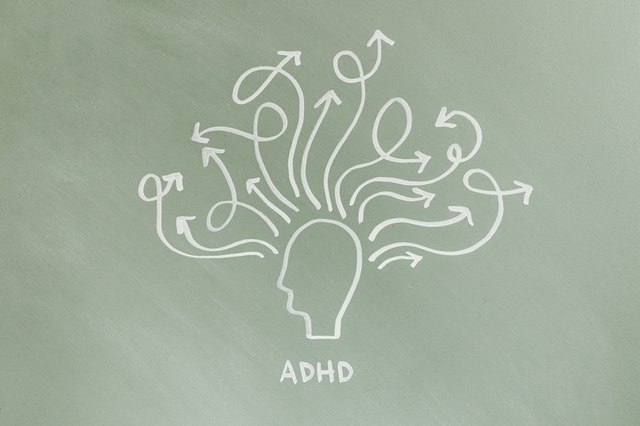Inside Our ADHD Minds: Strategies For Success

Table of Contents
Understanding the ADHD Brain: Cognitive Strengths and Challenges
ADHD is a neurodevelopmental disorder affecting executive functions – the brain's control center for planning, organizing, and self-regulation. While it presents challenges, it also often comes with unique cognitive strengths.
-
Neurological Basis: Research points to differences in brain structure and function in individuals with ADHD, impacting dopamine and norepinephrine levels, neurotransmitters crucial for attention and focus. This can lead to difficulties with executive functions.
-
Cognitive Strengths: Many individuals with ADHD possess exceptional creativity, hyperfocus (intense concentration on a specific task), and innovative thinking abilities. These strengths, when harnessed effectively, can be powerful assets.
-
Common Challenges: The challenges associated with ADHD often include:
- Difficulty with attention and focus: Sustaining attention, especially on less engaging tasks, can be extremely difficult.
- Impulsivity and emotional regulation: Acting without thinking and experiencing intense emotions can disrupt daily functioning.
- Time management and organization: Planning, prioritizing, and meeting deadlines can be significantly challenging.
- Working memory deficits: Holding information in mind and manipulating it for tasks like problem-solving can be difficult.
Time Management Techniques for ADHD
Effective time management is crucial for individuals with ADHD. It's not about cramming more into your day, but about working smarter, not harder.
-
Realistic Goal Setting: Break down large tasks into smaller, more manageable steps. Celebrate each small victory to maintain motivation.
-
Time Management Tools and Techniques:
- Time Blocking: Allocate specific time slots for particular tasks in your day.
- Pomodoro Technique: Work in focused bursts (e.g., 25 minutes) followed by short breaks.
- Timers and Alarms: Use visual and auditory cues to stay on track.
- Prioritization Matrices (Eisenhower Matrix): Categorize tasks by urgency and importance.
- Technology and Apps: Explore apps like Todoist, Any.do, Focus To-Do, and Forest to aid in time management and focus.
Organization Strategies for a More Focused Life
External organization systems are paramount for individuals with ADHD, reducing reliance on fallible working memory.
-
Decluttering and Designated Spaces: Create organized, clutter-free spaces for work and personal items. A tidy environment reduces visual distractions.
-
Visual Organizers: Use whiteboards, calendars, and visual schedules to track tasks, appointments, and deadlines.
-
Labeling and Color-Coding: Use labels and color-coding to categorize and easily locate items.
-
Digital Organization Tools: Utilize cloud storage (Google Drive, Dropbox), note-taking apps (Evernote, OneNote), and digital calendars to centralize information.
Enhancing Focus and Concentration: Practical Tips
Improving focus requires conscious effort and the development of effective strategies.
-
Mindfulness and Meditation: Regular mindfulness practices can enhance attention and reduce impulsivity. Even short meditation sessions can make a difference.
-
Minimizing Distractions:
- Dedicated Workspace: Create a distraction-free workspace dedicated solely to work or study.
- Noise-Canceling Headphones or White Noise: Use these to block out environmental distractions.
- Minimize Digital Distractions: Turn off notifications and use website blockers to limit online distractions.
- Regular Breaks: Schedule short breaks throughout the day to prevent burnout and maintain focus.
Seeking Support and Building a Strong Support System
Living with ADHD doesn't have to be a solitary journey. Support is crucial for success.
-
Professional Help: Therapists, coaches, and psychiatrists specializing in ADHD can provide valuable guidance and treatment options.
-
Support Groups: Connecting with others who understand the challenges of ADHD can provide emotional support and practical advice.
-
Family and Friends: Educate your loved ones about ADHD to foster understanding and build a supportive environment.
Mastering Your ADHD Journey: Strategies for Success
Successfully managing ADHD involves a multifaceted approach encompassing effective time management, robust organizational systems, focused concentration techniques, and a supportive network. Remember self-compassion; understanding your unique challenges is vital. ADHD doesn't define you; it's a part of you that you can learn to manage effectively. Start implementing these strategies today to gain control of your ADHD and unlock your full potential. Learn more about effective ADHD management techniques by exploring [link to relevant resource]. Take the first step towards mastering your ADHD journey by exploring [link to relevant resource].

Featured Posts
-
 Abbott Directs Texas Rangers Investigation Of Proposed Plano Islamic Center
May 13, 2025
Abbott Directs Texas Rangers Investigation Of Proposed Plano Islamic Center
May 13, 2025 -
 Governor Issues Strong Warning Against Controversial Texas Muslim City Plan
May 13, 2025
Governor Issues Strong Warning Against Controversial Texas Muslim City Plan
May 13, 2025 -
 Doom Dark Ages Inspiration How Classic Doom Influences Modern Development
May 13, 2025
Doom Dark Ages Inspiration How Classic Doom Influences Modern Development
May 13, 2025 -
 Miami Open 2024 Sabalenka Triumphs Over Pegula
May 13, 2025
Miami Open 2024 Sabalenka Triumphs Over Pegula
May 13, 2025 -
 Dy Kapryw W Brwdy Aya Dr Fylm Zndgy Namh Ay Aywl Knywl Hmbazy My Shwnd
May 13, 2025
Dy Kapryw W Brwdy Aya Dr Fylm Zndgy Namh Ay Aywl Knywl Hmbazy My Shwnd
May 13, 2025
